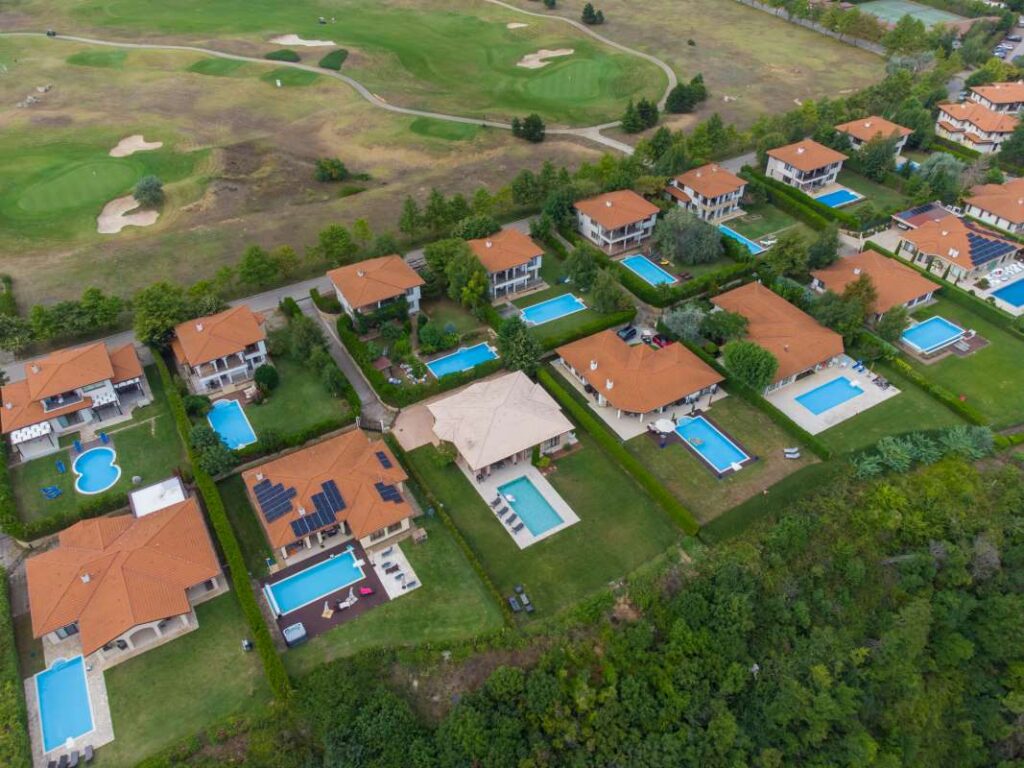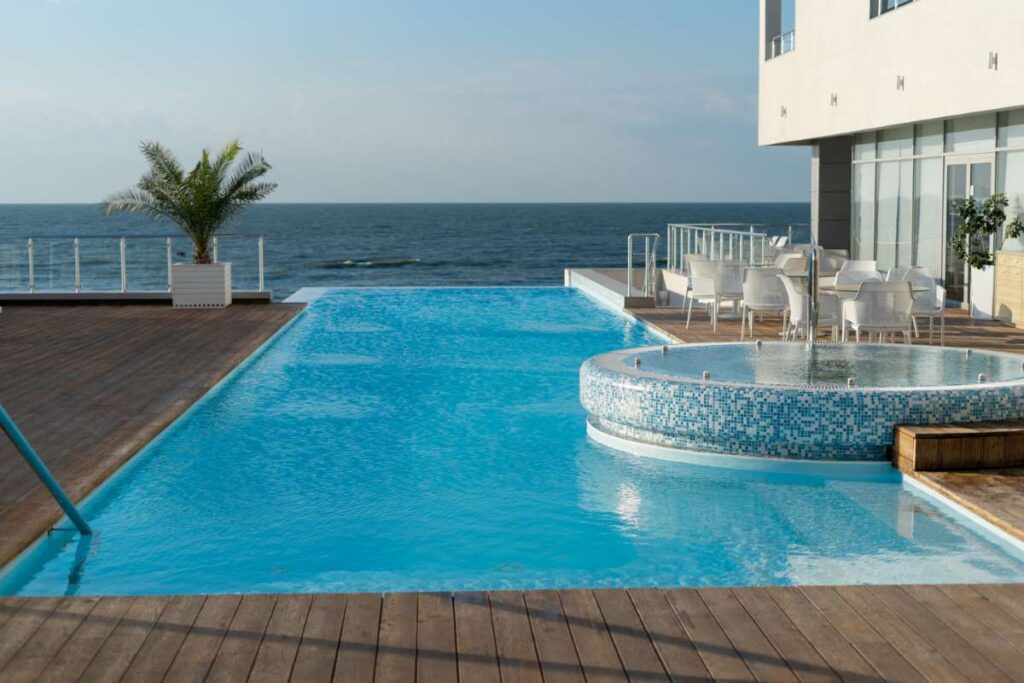Educating Clients on Sustainable Pool Practices
Learn how to educate clients on sustainable pool practices to promote eco-friendliness and reduce the environmental impact of pool maintenance.
This blog post delves into the essential aspects of educating clients on sustainable pool practices. As the demand for eco-friendly solutions increases, pool service providers must take the initiative to inform their clients about sustainable practices that can reduce the environmental impact of pool maintenance. This article will cover effective communication strategies, eco-conscious products, energy-saving technologies, water conservation methods, and the broader significance of sustainable practices in the swimming pool industry.
The Relevance of Sustainable Pool Practices
In today’s world, where climate change and environmental degradation are pressing issues, sustainability has become an essential consideration for all industries, including pool maintenance. Educating clients on sustainable practices not only helps the environment but can also enhance the reputation of pool service providers. Here are a few reasons why sustainable pool practices are relevant:- Environmental Impact: Traditional pool maintenance methods often involve the use of harmful chemicals and excessive water usage. By educating clients on sustainable alternatives, service providers can help reduce pollution and conserve resources.- Cost Savings: Sustainable practices often lead to long-term savings for clients through reduced water, energy, and chemical consumption. This financial incentive can motivate clients to adopt eco-friendly solutions.- Client Satisfaction: Many consumers are concerned about their environmental footprint. By offering sustainable options, pool service providers can attract clients who prioritize eco-friendly practices, leading to higher satisfaction and loyalty.- Industry Leadership: Educating clients positions your business as a leader in the industry. By promoting sustainability, you can differentiate yourself from competitors and appeal to a growing market segment.
Effective Communication Strategies
To effectively educate clients about sustainable pool practices, it’s vital to use clear and engaging communication strategies. Here are some effective methods:- Informative Brochures and Flyers: Create materials that outline sustainable practices and their benefits. Provide these during your visits or leave them at the pool area to encourage clients to read about eco-friendly options.- Workshops or Seminars: Host workshops or informational sessions to discuss sustainable practices. Engaging clients in dialogue allows for a deeper understanding and addresses any questions they may have.- Social Media Engagement: Utilize social media platforms to share tips, articles, and videos about sustainable pool practices. Engaging content can capture the attention of your audience and expand your reach.- Personalized Consultations: During routine maintenance visits, take the time to discuss sustainability with your clients. Tailor your conversation to their specific needs and concerns, providing personalized recommendations.- Client Testimonials and Success Stories: Showcase testimonials from clients who have successfully implemented sustainable practices. Highlight the positive impact on their pool maintenance experience to inspire others.
Eco-Conscious Products and Technologies
One of the most effective ways to promote sustainability is through the use of eco-conscious products and technologies. Here are several sustainable options to consider:- Natural Pool Chemicals: Encourage clients to use natural or biodegradable pool chemicals that have a lower environmental impact. These alternatives can effectively maintain water quality without harming the ecosystem.- Energy-Efficient Equipment: Recommend energy-efficient pumps, filters, and heaters that consume less electricity. For example, variable-speed pumps can significantly reduce energy usage compared to traditional single-speed models.- Solar Pool Heaters: Suggest the installation of solar heating systems, which utilize renewable energy to heat the pool, reducing reliance on fossil fuels.- Saltwater Systems: Discuss the benefits of saltwater chlorination systems, which produce chlorine from salt. These systems often require fewer chemicals and can be gentler on skin and eyes.- Eco-Friendly Covers: Promote the use of pool covers made from sustainable materials. Covers help reduce water evaporation, keep debris out, and maintain water temperature, resulting in energy savings.
Water Conservation Methods
Water conservation is a key component of sustainable pool practices. Educating clients on effective water-saving methods is crucial. Here are some strategies to share:- Regular Maintenance: Emphasize the importance of regular maintenance to prevent leaks and reduce water waste. Encourage clients to promptly report any signs of leaks in plumbing or equipment.- Evaporation Reduction: Advise clients to use pool covers during non-use periods to minimize evaporation. This simple practice can lead to substantial water savings, especially in hot climates.- Rainwater Harvesting: Discuss the benefits of rainwater harvesting systems that can collect and store rainwater for pool filling and maintenance. This practice reduces dependence on municipal water sources.- Water-Saving Features: Recommend installing water-saving features such as low-flow backwash systems and automatic pool cleaners that minimize water use during cleaning.- Education on Water Levels: Teach clients about the importance of maintaining proper water levels. Overfilling pools can lead to unnecessary water loss and chemical dilution.
The Broader Significance of Sustainable Practices
Understanding the broader significance of sustainable practices in the pool industry can motivate clients to adopt such initiatives. Here’s why sustainability matters:- Community Impact: By promoting sustainable practices, pool service providers contribute to community efforts to protect local water resources and ecosystems. This shared responsibility strengthens community ties.- Health Benefits: Reducing chemical usage not only benefits the environment but also promotes the health and safety of pool users. Educating clients about safer alternatives can help protect their families.- Regulatory Compliance: As governmental regulations increasingly focus on environmental protection, staying informed about sustainable practices can help clients comply with local laws, ultimately preventing potential fines.- Future-Proofing: As society progresses towards more sustainable practices, clients who adopt eco-friendly solutions position themselves as responsible consumers. This shift aligns them with future trends and market demands.- Global Responsibility: Educating clients about sustainability contributes to a larger global movement aimed at combating climate change and preserving natural resources for future generations.
Conclusion
In conclusion, educating clients on sustainable pool practices is not merely a trend but a crucial aspect of responsible pool maintenance. By understanding the relevance, implementing effective communication strategies, promoting eco-conscious products, advocating for water conservation, and grasping the broader significance of sustainability, pool service providers can make a lasting impact. As a pool service provider, you have the power to shape your client’s choices towards more sustainable practices, ultimately benefitting not just their pool maintenance experience, but also the environment. Embrace this opportunity to lead by example and encourage eco-friendly initiatives in the swimming pool industry. Start educating your clients today, and together, let’s create a more sustainable future for our pools and our planet.For those interested in expanding their pool service business while embracing sustainability, consider exploring our
Pool Routes For Sale and get started on your journey toward environmental responsibility today!



